Expert Radiation Oncology Care with Advanced Technology & Compassion”
Helping patients conquer cancer with cutting-edge radiation therapy techniques.


Trained at Tata Memorial & SGPGIMS

Expert in Advanced Radiation Techniques

Second Opinion Available
About Your Doctor

Hi, I’m Dr. Shanu Jain, a Senior Consultant in Radiation Oncology at HCG Cancer Care Centre in Nagpur.
I understand that a cancer diagnosis can be overwhelming. You’re faced with fear, uncertainty, and a thousand questions—Will I recover? Is the treatment painful? What’s the best option for me?
That’s why I’m here—not just as your doctor but as a guide, a supporter, and a firm believer in your strength. I don’t just treat cancer; I treat people.
I believe in treating cancer with a holistic approach—offering personalised treatment based on the stage of the disease, financial condition, family support, and the overall well-being of the patient.

MBBS - IGGMC, Nagpur

DNB Radiation Oncology - Yashoda Super Specialty Hospital, Hyderabad

Senior Residency - SGPGIMS, Lucknow & Tata Memorial Hospital, Mumbai

Fellowship in GI Radiation Oncology - TMH, Mumbai
Awards & Recognitions

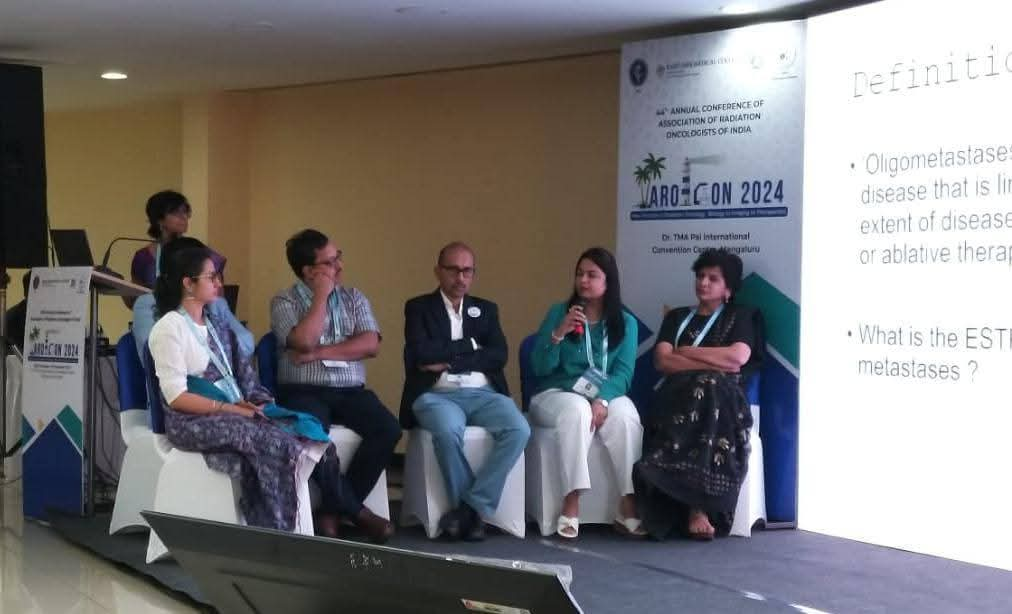
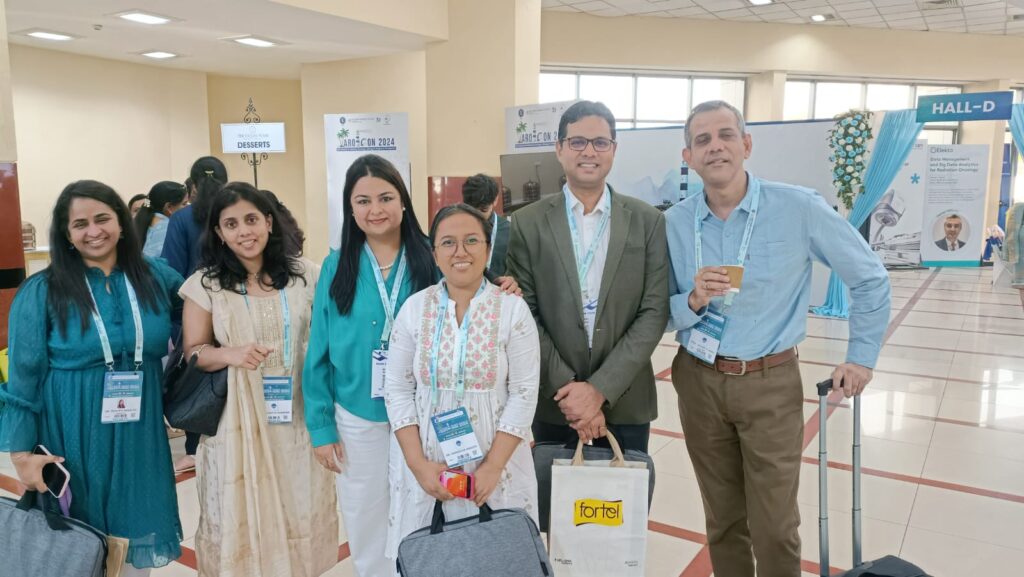


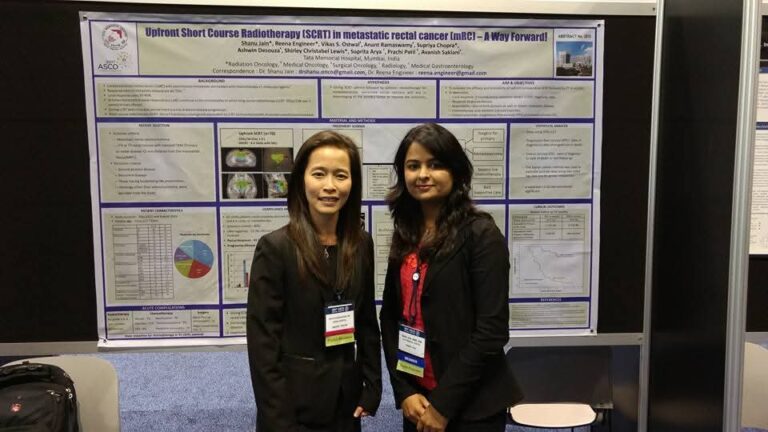
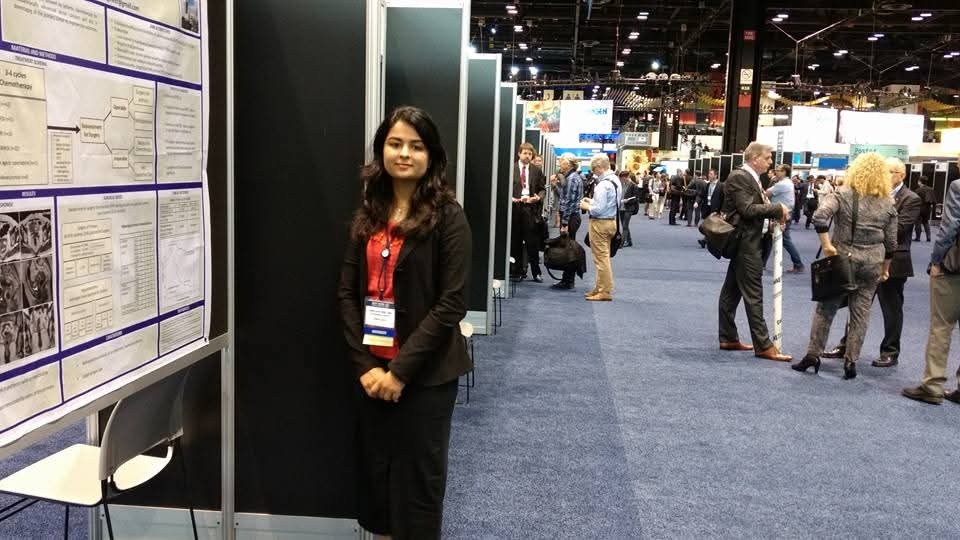

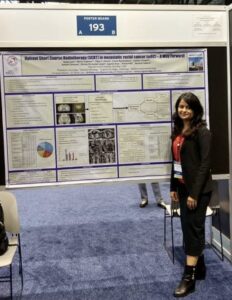
What is Radiation Oncology?
Radiation oncology is a specialized branch of medicine that focuses on treating cancer using high-energy radiation (such as X-rays, gamma rays, or proton beams) to destroy cancer cells.
It is one of the three primary cancer treatment options, alongside surgery and systemic therapies (such as chemotherapy, immunotherapy, and targeted therapy).
Radiation therapy can be used alone or in combination with other treatments to:


How Does Radiation Therapy Work?
Radiation therapy damages the DNA of cancer cells, preventing them from multiplying. Over time, the damaged cancer cells die, and the body naturally removes them.
Modern radiation techniques are highly advanced, ensuring maximum precision with minimal harm to surrounding healthy tissues.
Types of Radiation Therapy


Benefits of Radiation Therapy
✔ Effective in Treating Many Types of Cancer
Radiation therapy is widely used for breast, lung, prostate, brain, head & neck, gynaecological, and gastrointestinal cancers, among others.
✔ Non-Invasive & Painless
Unlike surgery, radiation therapy is non-invasive, meaning there are no cuts or incisions, and the procedure is painless.
✔ Preserves Organ Function
For cancers in critical areas (e.g., brain, lungs, prostate), radiation can eliminate tumours while preserving organ function.
✔ Fewer Side Effects with Advanced Techniques
Modern techniques like IMRT, IGRT, SBRT, and SRS ensure that radiation is delivered with extreme precision, reducing damage to healthy tissues and minimizing side effects.
✔ Can Be Combined with Other Treatments
Radiation therapy enhances the effectiveness of surgery and chemotherapy, increasing survival rates.
Treatments

LUNG SBRT CANCER
📌 Overview
Lung cancer originates in the lungs and is strongly linked to smoking, pollution, and genetic factors.
⚠️ Signs & Symptoms
- Persistent cough or coughing up blood
- Shortness of breath
- Chest pain
- Unexplained weight loss

ESOPHAGEAL CANCER
📌 Overview
This cancer starts in the oesophagus or the food pipe and is associated with smoking, alcohol, and acid reflux.
⚠️ Signs & Symptoms
- Difficulty or pain while swallowing
- Unexplained weight loss
- Chest pain or persistent heartburn

BREAST CANCER
📌 Overview
Breast cancer starts in the breast tissues, usually in the ducts or lobules. It is the most common cancer among women but can also occur in men.
⚠️ Signs & Symptoms
- A lump in the breast or armpit
- Change in breast size or shape
- Nipple discharge (bloody or clear)
- Skin dimpling or redness
Why choose me
When it comes to cancer treatment, every decision matters. As a Radiation Oncologist with over 12+ years of experience and specialised training from India’s most prestigious institutions like Tata Memorial Hospital (TMH), Mumbai and SGPGIMS, Lucknow, I am committed to providing compassionate, personalised, and cutting-edge care for every patient.
Here’s why patients trust me with their cancer journey:
✅ Expertise You Can Trust:
With extensive experience treating various cancers—such as breast, lung, head and neck, brain, gastrointestinal, and more—I provide care tailored to your specific needs.
✅ Advanced Treatment Techniques:
I offer the latest radiation therapy technologies to ensure precision, effectiveness, and minimised side effects. These include:
IMRT (Intensity Modulated Radiotherapy): Delivers highly targeted radiation while protecting healthy tissues.
IGRT (Image Guided Radiotherapy): Allows precise tumour targeting through advanced imaging.
VMAT (Volumetric Modulated Arc Therapy)/Rapid Arc: Provides faster treatment with greater accuracy.
Stereotactic Radiosurgery (SRS): A non-invasive, high-precision treatment for brain tumours.
Stereotactic Body Radiotherapy (SBRT): Targets tumours in the lung, liver, spine, and more with high-dose precision.
Respiratory Gating: Synchronizes radiation delivery with your breathing for better accuracy.
Breath Hold Techniques:
Deep Inspiration Breath Hold (DIBH): Protects organs like the heart during breast cancer treatment.
Deep Expiration Breath Hold (DEBH): Improves precision in targeting tumours affected by breathing.
✅ Holistic Patient Care:
I focus on every aspect of your well-being—physical, emotional, and psychological—guiding you through every step of your treatment journey with empathy and support.
✅ Evidence-Based Treatments:
I follow internationally recognised treatment protocols, ensuring the best possible outcomes for every patient.
✅ Second Opinion Services:
I offer expert second opinions to help you make confident decisions about your treatment plan.
✅ Patient-Centered Approach:
Your comfort, trust, and care are my top priorities. I am here to answer your questions, ease your concerns, and support you and your family every step of the way.
Your journey of healing deserves the best care—and I am here to provide it.
Patient Testimonials
Frequently Asked Questions
How do I prepare for radiation therapy?
Your doctor will perform imaging tests and may mark the treatment area on your skin. You may also need dental evaluations or dietary adjustments, depending on the cancer type.
Will I need to stay in the hospital during treatment?
Can I continue working during treatment?
How long does a radiation therapy session last?
A typical session lasts 10 to 30 minutes, though preparation may take longer.
Will radiation therapy hurt?
No, radiation therapy itself is painless, like getting an X-ray. However, side effects may develop over time.
What side effects should I expect?
Common side effects include:
- Fatigue
- Skin redness or irritation
- Hair loss in the treated area
- Swallowing difficulties (for head and neck treatments)
Most side effects are temporary and manageable with medical guidance.
Can I be around family and children after radiation therapy?
Yes, for external radiation therapy. However, if you receive internal radiation (brachytherapy), special precautions may be required.
How will I know if the treatment worked?
Your doctor will monitor your progress through follow-up appointments, imaging scans, and lab tests. It may take weeks or months to see full results.
How can I manage long-term side effects?
Your doctor will provide guidance on nutrition, exercise, and medications to minimise long-term effects. Regular follow-ups are essential.
Will I need additional treatments after radiation therapy?
It depends on the type and stage of your cancer. Some patients may need chemotherapy, immunotherapy, or surgery for optimal results.
Is radiation therapy safe for children?
Yes, but pediatric cases require specialised treatment plans to minimize risks and long-term effects.
Can radiation therapy be repeated if cancer returns?
In some cases, yes. However, the feasibility depends on the previous radiation dose and the location of the recurrence.
Does radiation therapy cause secondary cancer?
The risk is minimal compared to the benefits of treating cancer. Advances in technology help minimise unnecessary radiation exposure.
What foods should I eat during radiation therapy?
A balanced diet rich in proteins, fruits, and vegetables is recommended. Avoid spicy, acidic, or hard-to-digest foods if you experience digestive issues.
Can I exercise during treatment?
Light to moderate exercise can help maintain energy levels, but listen to your body and consult your doctor before starting a routine.
Where can I find emotional and psychological support?
Many hospitals offer counselling, support groups, and palliative care services to help patients cope with the emotional aspects of cancer treatment
How do I book an appointment?
You can schedule an appointment by calling our clinic or using the online booking form on our website.
Do I need a referral to see a radiation oncologist?
This depends on your healthcare provider and insurance policy. Contact our office for guidance on referrals.
What should I bring to my first appointment
Please bring:
- Previous medical records
- Imaging scans (X-rays, CT, MRI, PET)
- A list of medications you’re taking
Contact Us
Your Health Is My Priority.
Let's work together for a better tomorrow.
Book an Appointment Online
Schedule Your Consultation
- 7024110502
- dr.shanu.onco@gmail.com
- Mon - Sat (10 AM - 6 PM)
- HCG CANCER HOSPITAL NAGPUR : Mouja Wanjri Khasra No.50, 51 Ring Road Near Automotive Square Kalam Bande Nawaz Nagar, Binaki, Nagpur, Maharashtra 440017
